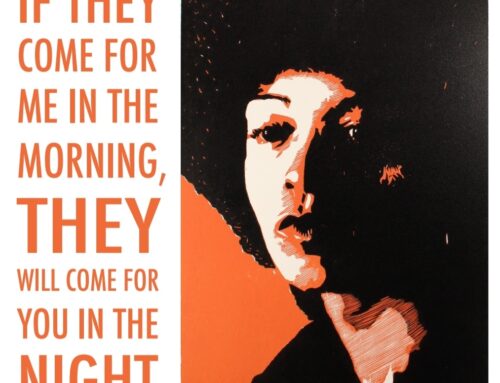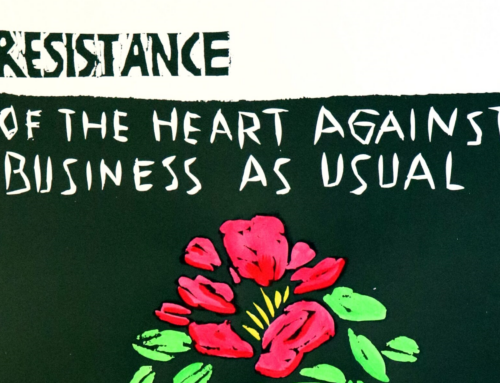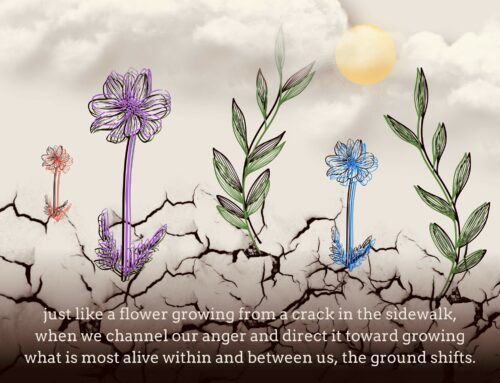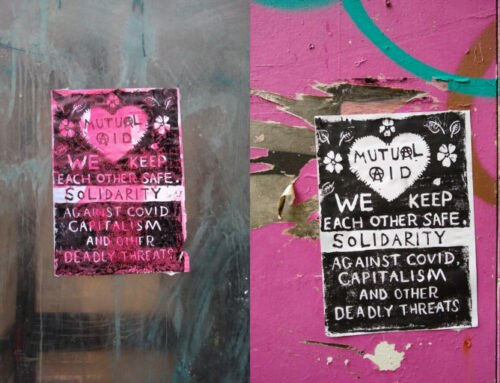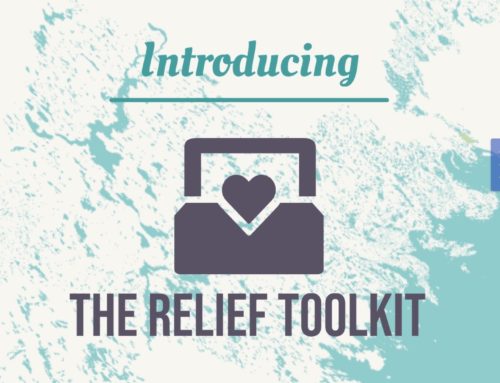I first want to express my gratitude and love for the hospitality shown to me by the folks I met in Houston. I believe that the most important thing that those of us from outside the area can do is support ya’ll in your work and build capacity through trainings and outreach and probably paying for a vacation for some of the anchors down there in about a month.
My overall sense of the trajectory of Harvey relief is that the nature of the problem is insidious. The storm was characterized by water rather than wind – so the highly visible damage that wind causes is not a thing. It is easy to drive around Houston and see no visible exterior damage and see that life is going on and therefor assume that everything is fine. The problem, is that the insides of people’s homes is where the damage is, that Houston is huge, that neighborhoods can be very insular and non-english speaking, and even non-spanish speaking, and that there is a lot of over-lapping traumas that seem likely to act as (yet another) barrier to people accessing, asking for, and knowing what support they need.
My biggest concern in the long run is that people will “choose” (read; have no other viable option) to live in mold ridden houses and that in 5-10 years there will be a massive health crisis related to the mold. My other big concern is about the breadth and scope of trauma associated with all of the crises taking place right now. The world is under duress, in no small way – between war and weather – things feel fucked up, multi-layered, nuanced, stark and painful.
Action steps
You know. The map of Houston’s roadways seem like a really appropriate visual metaphor for the possible levels of support and how they interconnect. It’s a ripple outwards with lines that connect those ripples. The impact ripples outwards getting more diffuse the further out it goes, the lines are pathways that intersect each of the ripples that we can travel down to offer care and support along the way. That care in turn, creates its own ripple.
Well, OK. There’s one other thing I have to mention. I woke up this morning to read about Hurricane Maria and its impact on Dominica, about the 1300 deaths in South Asia from flooding, about police riots in St. Louis and Georgia Tech, and we’ve seen in the past 3 weeks Hurricanes Harvey and Irma, forest fires all over the Northwest, and an earthquake in Mexico. Trump says he’s gonna bomb the shit out of North Korea, ethnic cleansing in Burma and one of our heroes against the repressive military regimes there acting in possible collusion, and more. I mean… fuck. This shit hurts. I’m sure that some people’s lives are fine, but it is kind of hard to imagine when it seems like the scope of tragedy is so fucking huge.
In light of all this and the logistical immensity of Houston alone – my thinking is kind of meta. I’m trying to think about interventions that can have the broadest reaching impacts without overlooking that there are micro individual needs that also need tending. I’m not sure how good a job I’ll do – but here goes…
Identify groups that we can collaborate with.
For example Mt. Gilead Church in Beaumont is a location run by people who are hosting events to distribute supplies and healthcare at their location, they are collaborating with another church in the area that is going to be providing housing for volunteers. They are extremely open to any kind of care or training that our networks can provide and they know the needs of their community. Working with them magnifies the ripples of support in that area as well as provides a clear way to organize the things we offer. Such as…
Trainings.
The scope of this is so huge that while volunteers can be helpful in getting work done, it seems clear that the bulk of the work is going to be done by the people in their own communities. We can bolster this work by sharing the things that we have learned through our collective experiences of past disasters. Here are some trainings that I can imagine:
*House gutting and the importance of safety especially as the mold increases.
*Disaster Mental/Emotional health – stages of a disaster and its impacts
*Emotional First Aid and Active Listening
*Modified Affinity Group Medic Training
*Health and Safety Trainings
***All of these trainings in English, Spanish, Vietnamese and hopefully Arabic***
Care for care providers.
Medics and other wellness workers, Clergy, Core-Organizers
For people further out the ripple of impact – periodic offerings of massage, acupuncture, energy work, and retreats for the above mentioned care providers and others I may not have considered. Especially as the months wear on. If you don’t have time now – there will still be work to do in November, January, July. Mark your calendars. Host some people. Turn up and cook for a week. Etc. If there’s a spa in your area – see if they would offer a free retreat weekend for a few folks from Houston – fund raise the flights.
Networks of Hospitality.
There’s two parts to this. One part is hosting relief workers and volunteers if they end up leaving the impacted areas and needing a break or a safe space. It seems important not to assume that just because a person is able to support relief work – doesn’t mean they have safe or supportive home places to return to.
The second part of this – is given the massive geographical area that has been impacted by storms and other disasters so far this year – and the fact that hurricane season is a good ways from over – people might start to need places to go. If it doesn’t happen this year. it doesn’t seem like a huge leap to expect that it will happen soon. Maybe the next 5-10 years. Networks like couchsurfing.com have laid a foundation for some possibilities of how such a thing could grow and function.
This could be a great project for some web nerds and designers and solid network building in your local areas. If anyone is interested in working on this – I have some ideas of how to get started and how to grow it once it is started. Holler.
Pressure on the Red Cross, FEMA, and other major NGO’s
We already know they suck. We keep telling them they suck and they need to get it together… and yet, there they are. Doing it again. These orgs need to get more transparent about EVERYTHING. Ahh. NOW.
How can they justify refusing people shelter, blankets and food? How can they justify the use of criminalizing language and the police to further traumatize impacted people living through this whirlwind? What is their legitimate reasoning for refusing care providers access to people in need of care? Why are they packaging up and sending away goods still needed in Houston? Why are their volunteers acting aggressively towards survivors?
All of these questions are redundant, there aren’t any good answers to these questions – these orgs just need to stop being assholes. They need to stop with the scarcity and criminalizing charity model. But what do we want from them? How could Houston and other impacted areas imagine using the massive resources of these orgs to rebuild their lives?
Taking on some organizing around this could be a good project for the NNU or another union or organized group to bring attention to these problems and point to solutions.
Conclusion
We are in it for the long-haul, which means it is a necessity for our autonomous, decentralized, and liberatory disaster relief movement(s) to facilitate physical, psychological and emotional sustainability for those who choose to do this work. Identifying and partnering with more groups, offering trainings, more healing spaces and healing practitioners, networks of hospitality, and pressuring large, mainstream organizations is a good place to start. Despite responding to crises that very well could increase exponentially, we must unite around meeting people’s individual needs for survival and a macro/meta vision and praxis of sustainable mutual aid and solidarity-based disaster relief and recovery.
